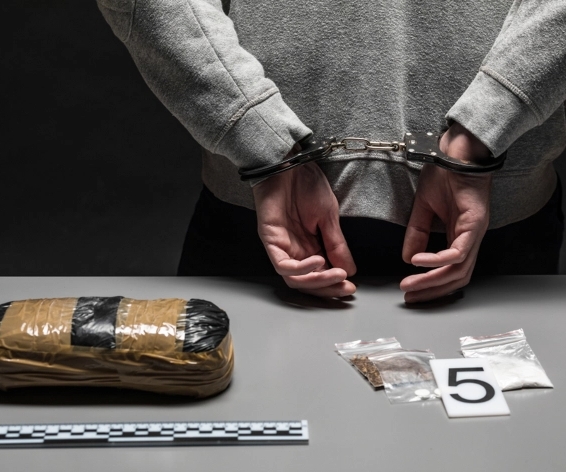
Drug Offenses
Drug crimes are some of the more common felony charges filed in Colorado. Recently, Colorado reformed its drug laws to allow certain drug possession cases to be converted to a misdemeanor upon successful completion of probation.
When facing drug-related charges, whether as a juvenile, student, or adult, High Country Legal Group provides comprehensive legal support tailored to your unique circumstances. We understand that a single mistake or substance addiction can jeopardize your future, impacting your family, career, and mental well-being.
Drug Possession Defense:
Drug possession charges are serious offenses in Colorado’s criminal justice system. The punitive approach of the government’s “war on drugs” often leads to disproportionately harsh sentences, particularly for nonviolent offenders who may require treatment for substance dependency and mental health issues.
Drug Schedules: In Colorado, drugs are classified into five schedules based on their medical uses and potential for abuse and dependency. High Country Legal Group understands the nuances of these classifications and utilizes this knowledge to craft effective defense strategies tailored to your specific situation.
Schedule I — Heroin, LSD, cannabis, ecstasy, methaqualone, and peyote
Schedule II — Cocaine, methamphetamine, methadone, hydromorphone, meperidine, oxycodone, OxyContin, fentanyl, Dexedrine, Adderall, and Ritalin
Schedule III — Ketamine, anabolic steroids, testosterone, and smaller amounts of hydrocodone and codeine in combination pharmaceuticals
Schedule IV — Xanax, Soma, Darvon, Darvocet, Valium, Ativan, Talwin, and Ambien
Schedule V — Lomotil, Motofen, Lyrica, Parepectolin, and low dosages of codeine in cough preparation
Drug Court Provisions:
Recognizing the opportunity to give defendants help rather than punishment, Colorado developed 70 problem-solving courts that offer important sentencing alternatives. We also recognize the importance of exploring alternative sentencing options, such as participation in drug courts. These specialized courts offer defendants the opportunity to receive rehabilitation, mental health counseling, and judicial oversight, focusing on treating substance abuse issues rather than punishment. Our attorneys discuss these options with you and guide you to help you make informed decisions about your case.
Drug Conspiracy Defense:
Elements of a Drug Conspiracy Charge:
To prevail in winning a conviction, the prosecution must prove beyond a reasonable doubt each element of a drug conspiracy charge:
- Agreement: There was an agreement between two or more individuals to violate drug laws.
- Knowledge and Intent: You must have known about the agreement and intended to join the conspiracy. This requires evidence showing your awareness of the illegal activity and your willingness to participate in it.
- Act in Furtherance: At least one act was committed in furtherance of the conspiracy. This could include actions such as the distribution of drugs, possession with intent to distribute, or other steps taken to advance the illegal scheme.
Despite the legalization of small amounts of marijuana in Colorado, as of January 1, 2014, you can still face charges under federal statutes, which hold possession of cannabis illegal.
Student Representation:
In college towns and mountain communities, social events like parties, concerts, and clubs can often be environments where illicit substance use occurs, ranging from cocaine and LSD to methamphetamine and cannabis. Additionally, misuse of prescription medications like Adderall and Xanax are not uncommon among students, whether for recreational purposes or to enhance academic performance.
We tailor our approach to student drug-related charges based on each case’s specifics. This could mean seeking diversion into drug court or emphasizing rehabilitation. In certain cases, we advocate that the student lacked intent or awareness and was merely in the wrong place at the wrong time—a situation that many students have found themselves in.
Underage marijuana possession and drinking
Although small quantities of recreational marijuana have become legal as of January 1, 2014, possession of marijuana by anyone under the age of 21 remains illegal. Drinking alcohol while underage is also illegal. Our attorneys take steps to keep your child’s future from being affected by a drug- or alcohol-related crime conviction.
Our team is committed to protecting your child’s future from the consequences of drug- or alcohol-related convictions.
